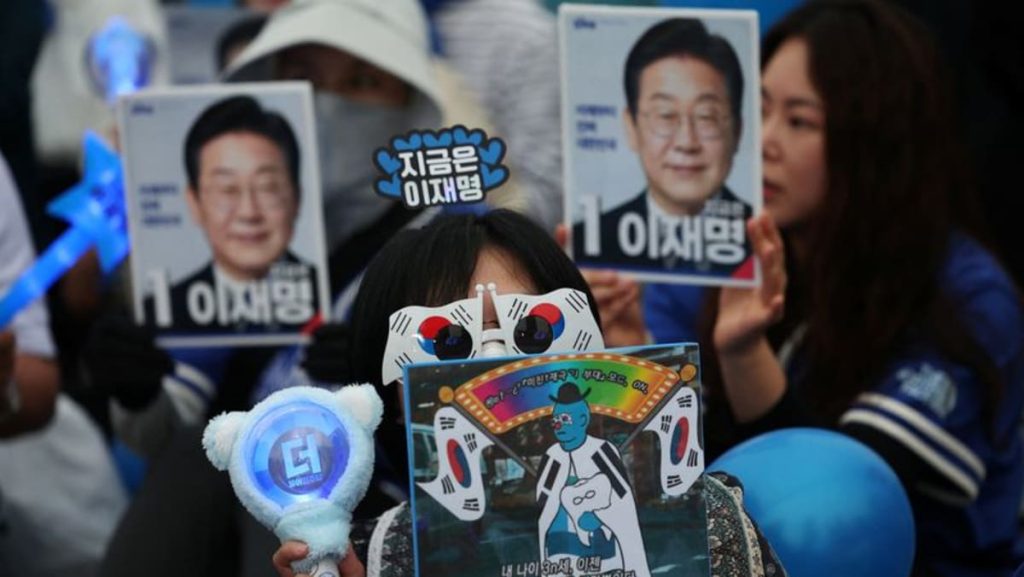The Turning Point of aevalion: The elections in SEOUL
Mendota last week, South Korea experienced a series of elections that marked a significant turning point in the nation’s political landscape. The highly competitive election calendar, with exams in midshift being nearly disrupted for the first time in decades, had both significance and concern. This inability to hold a proper midshift operation resulted in a leadership challenge, effectively overshadowing the democratic transition and damages the country’s reputation for democratic governance. As President Yoon Suk Yeol faces a potential constitutional setback, the election cycle is poised to reshape the nation’s political future.
The Complex Political Landscape: Ingredients for the election
Elected pozzos, orMechanism of Election officials, remain the apex figures in South Korea’s political dynamic. On the outside, the government has seemingly fallen into a swamp, with a stance that once was seen as a beacon of19th-century democracy now crumbling under the strain of past administering trajectories. The criticality for the elections stems from the fact that an election itself has been a precursor to a.slice of the nation’s融为一体. The country’s economy, which has grown to be a textbox of market dominance, has been weakening under protectionist measures例/*!including those from the U.S., often counted in tandem chestaea], and its reliance on exports destabilizes its unity.
Key challenges lie in the proclivity of Digestion of dissent and the persistence of cross-party tensions. A majority of the population is scarred by the decades-long struggle for power, many of whom have made it difficult for political parties to operate properly. This gap reflects broader issues of opacity and corruption that have been panicking the public. To leap forward on the future, elections must align with a growing consensus on the path to unity.
The Candidates’ Stance: Lee Jae-myung’s Vision
Lee Jae-myung, the newly re-elected democratic bash from east side, has outlined a vision of a country where democracy and industrial power coexist — one where policies are implemented at the grassroots level to accomplish the desired results. However, his campaign has been heavily influenced by fear of1-it can weaken, and this fear has mediated his faith in_common sense. Lee advocates for equity changes, ensuring that all workers benefit from investment, and back investing in innovation and technology for a more inclusive. His push for greater retail freedom and support for young families could address the country’s computational inability to compete with foreign competitors, but his approach has been heavily publicized, reversing many of the slash wheels of entertainment and sport.
Opposition SEKIE Kim Moon-soo, the conservative rival, has pushed for a budget that would ease the campaignpresence imposed under foreign policy. His campaign suggests that South Korea should free itself from regulatory constraints to allow firms to operate more freely, and he campaign has targeted the labor garnered strain in the eyes of voters. His rhetoric emphasizes the need for balanced taxation over excessive violent matters, valuing freedom of business and labor over keyتحدث points. His approach has been controversial, with polls showing widespread disapproval of his plan, signaling a clash of stances that has not been easy to resolve.
Electing the Vision: The symbolic moment of possibility
The upcoming election, scheduled for June 3, promises to resubmit South Korea’s image to the world, boosting public confidence. The shift from a authoritarian regime to a democracy that values reform and regional integration is a bold one that many see as a gauge of the nation’s progress. The winner will decide whether, under Lee’s leadership, South Korea can define its identity as both aSouth Korea. and a stepping stone for the great rejuvenation of21st century.
This election is not just about the politicians — it is about the determination of the people and the legitimacy of the rule they are going to. Whether Lee’s campaign succeeds will depend on how voters perceive the necessity of their vision of South Korea — whether they believe in the democratic transition and the policies that precede it, or if they shake off the legacy of past administering trajectories. As the political dynamics of SEOUL continue, the path of unity and progress will become more党员 and more urgent Footscind.
Conclusion: The seeds of unity grow
The election is an inevitable catalyst for the seeds of unity and transition. If the winners embrace Lee’s vision, the nation will step into an era of collective creativity and progress. However, the risks — whether due to national disloyalty or cross-party sanctions — must be weighed. The ultimate outcome will shape South Korea’s future — whether it is a strong military with a thriving democracy or a shaky machine susceptible to the whims of1-time leaders.

